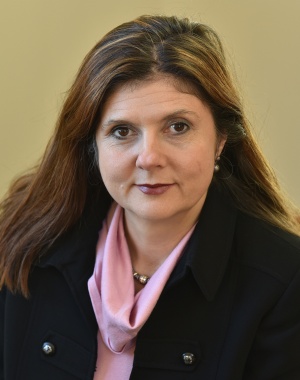
News this week that GDP had contracted for the second quarter in a row, combined with the Fed’s interest rate hike and persistent inflationary pressure, are creating fear that the U.S. economy is headed towards recession. Yet the picture is confusing, as employment continues to grow, the stock market had its best month since 2020, and consumer spending is up.
Ford School economics professors Kathryn Dominguez, Betsey Stevenson, and Justin Wolfers have been widely sought out for their commentary on the state of the economy.
"The numbers are baffling right now - we just don't normally see declining GDP and rising employment," Stevenson told the Washington Post. "Employment is still growing. Consumer spending has not taken much of a hit. Households have stronger balance sheets than we normally have. Even with a negative number in the second quarter, it's going to take some serious thought to figure out whether that's really enough to say that we're in a recession."
Wolfers examined the inflation rate with Stephanie Ruhle on MSNBC. “The question is: Is inflation being driven by supply factors? That would be the virus in China, that would be Putin in Ukraine, that would be supply chain issues. Or is it demand factors? That we have a very tight labor market right now. So while the Fed can’t affect the supply factors, it can bring inflation down.”
"I don’t think it’s clobbering the economy right now. If it keeps taking bigger and bolder steps, it might be something to worry about,” he continued.
“The issue is getting [consumer spending] to slow down at just the right level, so that, in fact, firms can stop raising prices, households will stop demanding higher wages, and, slowly, prices will start to stabilize,” Dominguez told PBS NewsHour.
“I'm optimistic that the Fed has the tools that they need to be able to bring down inflation,” she continued.
Stevenson noted that many people are “insulated“ from the effects of inflation. “People built up a lot of savings during the pandemic. And I think for a lot of households right now, even though they’re very worried about the economy, they think, ‘At least I have a reliable job,'” she told Marketplace.
Dominguez also spoke about the strength of the U.S. dollar. Speaking to EconoFact, she said, “Market participants are expecting that the U.S. economy is going to be stronger than most other economies over the foreseeable future. This may sound surprising, given the U.S. is also dealing with economic uncertainty, high inflation and fears of a recession. But other countries are facing the same challenges and the expectation is that the U.S. It is also to the dollar's advantage that interest rates are going up quicker in the U.S. than in other countries, which means that investments denominated in dollars are seen as more attractive because returns are higher. This return differential, as well as the safe haven status of the dollar, means that global investors are flocking to the dollar, reinforcing the dollar's strength.”
In a related interview, Wolfers commented on the state of the Australian economy, telling Channel 9 News that inflation would continue for the foreseeable future.
"I've never seen so much economic change in as short of a period in my entire lifetime," he said.
"Not surprisingly, it's going to have ripple effects for quite some time to come. The [Reserve Bank of Australia] can't destroy Putin, can't fix supply chains, can't get rid of the virus in China," Wolfers said.
- U.S. economy shrinks again in second quarter, reviving recession fears, Washington Post, July 28, 2022 (Stevenson)
- Fed rate hike, MSNBC, July 28, 2022 (Wolfers)
- Federal Reserve raises interest rates amid stubbornly high prices and recession concerns, PBS NewsHour, July 27, 2022 (Dominguez)
- Does declining consumer confidence lead to lower spending?, Marketplace, July 26 (Stevenson)
- The Strong Dollar, and Why It Matters, EconoFact, July 24, 2022 (Dominguez)
- When will the cost of living decrease? The perfect storm hitting our hip pockets, Channel 9, July 24, 2022 (Wolfers)


